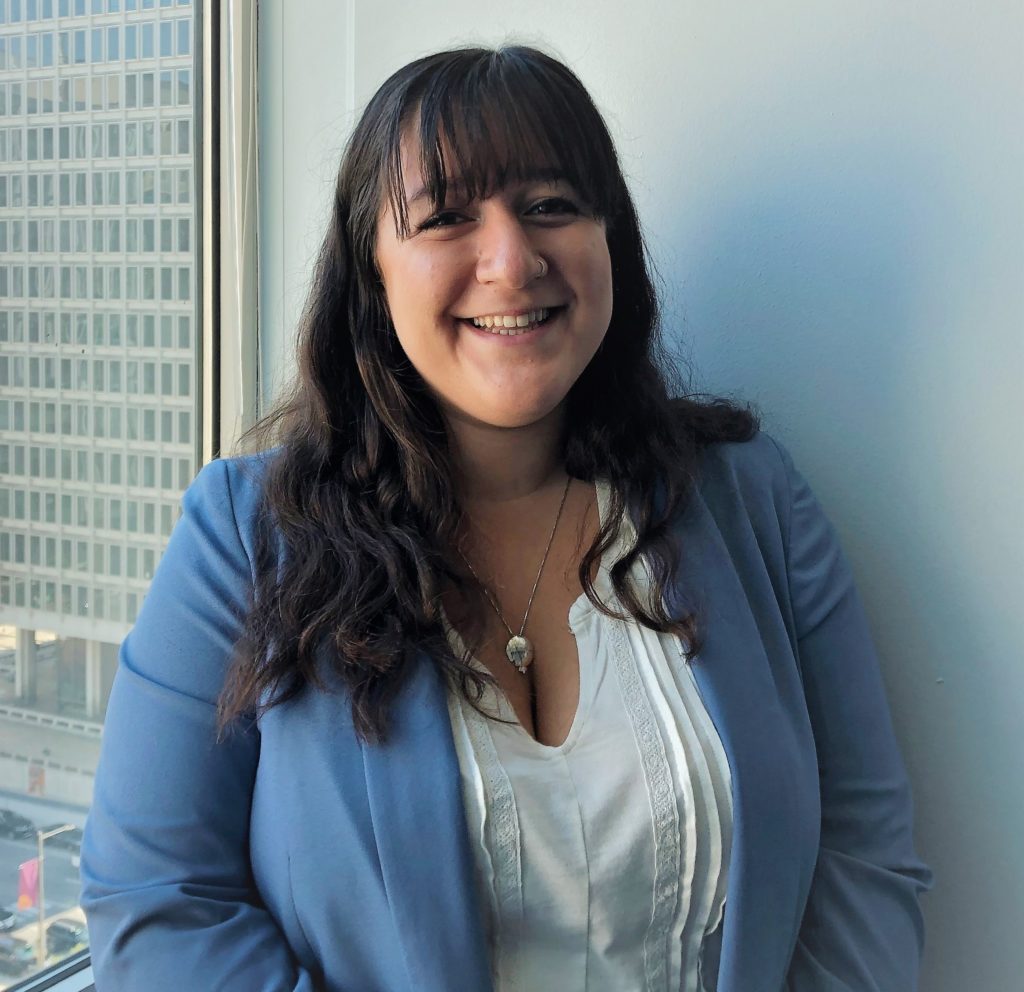Fairmount’s recurring spotlight on our expert team of consultants is back from hiatus! This fall, we’ll be introducing readers to staff engaged in the past year, who’ve arguably made the most adaptive shifts to consulting in abnormal times. Jennifer Rubin, Associate, supports community-based and institutional clients through her superior research, writing, and organizational skills, bringing a consultant’s sense of deep curiosity to every engagement. Jenny also models her commitment to equity as a member of Fairmount’s staff-led Social Justice Committee. She earned her B.A. in International Development and Social Change and an M.A. in Community Development and Planning from Clark University.
FV: With 2020 shining a light on the need for a strong nonprofit sector, what are a few of the ways you’ve helped clients respond to emergent crises and connect with key stakeholders in recent months?
JR: This year has really forced nonprofits to be flexible and pivot quickly, in terms of programming, services, and funding strategy. Many of my clients rely on ticket sales or program fees as revenue, and the shutdown has forced them to think differently about how to engage their community and raise funds in this new reality. It’s been energizing to see that funders – from family foundations to large corporate foundations – are understanding and shifting their funding priorities to help nonprofits stay afloat and service vulnerable communities. I’ve worked with clients to re-think programming and re-draft language that reflects the reality of our time. These clients have been able to raise vitally needed funds from funders to support their new and revised programs and services and offset earned revenue loss.

FV: How does your expertise in community development and community engagement inform your current work on behalf of your clients?
JR: My background in community development has given me a lens to see the world through. In my work with my clients, I keep their community front and center – whether that’s in my grant writing, or research. I approach each client project from a position of community assets, rather than community needs, and recognize the interlocking web of systems and structures that impact their constituents. Currently, I’m working on a community asset map for a client – pinpointing existing services and resources in the organization’s service area. This will help them determine what programming to offer in their new service hub – beyond initial assumptions about what the community needs, this work allows an organization to actually know what gaps in service exist and thus consider what would be most useful and empowering to those who live in the area.
FV: What does Fairmount’s social impact mission mean to you, especially in this moment?
JR: The events of this year have brought existing injustices and inequities to the public eye, and forced those of us with the privilege to ignore them to pay attention. I choose to work in the nonprofit and philanthropic sectors because I believe that ensuring that everyone has access to the resources and support that they need is the first step towards equity. Though not a perfect system, philanthropy and fundraising funnel necessary resources to community-embedded organizations. I’m moved by Fairmount’s purpose – to “strengthen, accelerate, and transform our clients’ impact in their communities,” which is even more necessary in this current moment, as people’s needs are heightened and the organizations that work to meet them are facing unforeseen financial, logistical, and sustainability challenges.
FV: No day is “typical” anymore. Tell us how you engage with clients, your Fairmount teams, and the nonprofit sector while working virtually.
JR: Though physically distant from my coworkers and clients, I’m finding this period of virtual work makes the need for genuine connection even stronger, and I’ve found myself taking more intentional time to check in with other Fairmount staff and our clients – not just about work, but about how we’re all dealing. Taking a few moments at the start of a call or in an email thread to acknowledge the state of the world and our own personal lives has actually made my connections stronger, and has helped inform my work with clients and my project teams in a new way, allowing for more flexibility and functional empathy.
FV: How are you finding ways to unwind and recharge? What gives you energy?
JR: I moved to Philly only a few months before the pandemic and the shutdown, so it’s been really interesting exploring and getting to know the city in a distant and safe way. My neighborhood in West Philly is full of trees and flowers and sunlight, and I’ve loved taking walks after signing off from work in the evenings. I love to talk on the phone when I walk, so I throw on my mask and my headphones and walk to nearby Clark Park while I call a loved one to check in. Also, I’ve been spending a lot of time spoiling my newly-adopted cat, Spicy, and my 40+ houseplants, no names.
